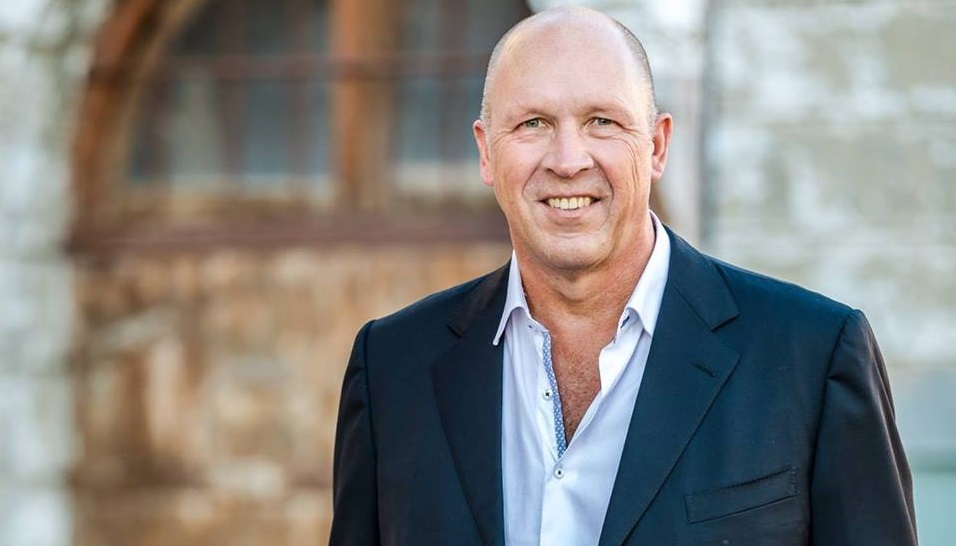We all have them. Those apps we open without thinking. Not because we need anything in particular, but because they feel… safe, in some…
An empty shell 3 years ago, Binu has since raised over R100m

Three years ago Gour Lentell was staring at an empty shell of a company. After eight years the money had run out and he’d had to let go of all 12 of his staff. Everyone told him to throw in the towel.
But the Zimbabwean born tech entrepreneur stubbornly held on, so convinced was he that he was onto something good — offering free internet and messaging services to the millions in the world who can’t access it because of high data costs.
Fast track to today and after having moved from Sydney to Cape Town over a year and a half ago he’s is now smiling.
This, after his mobile data company Binu last month received R40-million in investment from philanthropist Jonathan Ruffer’s charitable trust.
Binu, co-founded by Zimbabwean Gour Lentell, last month concluded a R40m deal with philanthropist Jonathan Ruffer
In all since 2016, Binu — which Lentell (pictured above) founded with UK born Dave Turner and is headquartered in Australia — has raised more than R100-million from Ruffer (who with his latest investment last month now has a majority stake in the firm), as well as millions from other investors.
Data on Crunchbase reveals that as of April 2017 Binu had raised $11.4-million (almost R170-million) since inception in 2008.
Today the company has 14 employees, with teams in Johannesburg, Sydney and Cape Town.
Reverse billing saved firm
What saved Lentell’s company was offering reverse billing on data charges to business clients who want to attract users to their sites.
Until 2016 the idea of reverse billing had not really caught on at telco’s he says. Up until then Binu had been offering users a free messaging service, but with no real idea how it would generate revenue from this. Until reverse billing came along.
Similar to an 0800 phone number, the business customer whose website it is picks up the tab for the data cost charges that telecom providers levy on users. A user who essentially is out of range of free Wi-Fi, can access such sites without incurring any data costs.
Complementing its business-to-business (B2B) offering, is Binu’s Moya Messenger service which aims to take on Whatsapp and last month reached one million active users in South Africa, claims Lentell.
The company already has agreements in place with all four major telco’s in South Africa, he says.
“All the growth has been viral,” he says, adding that 15 000 users join every day.
Users can use the messenger to not only send other users messages for free, but can also visit sites and get hold of certain content — all for free.
Organisations and businesses who have signed up to supply free content to users, are billed for the data charges that users would have incurred visiting these websites.
So far Binu has yet to begin providing messenger users with access to websites of organisations and businesses that have signed reverse billing agreements with the platform.
Instead users at present can access various content and other services through the messenger, such as a Google dictionary and certain websites that offer education services and soccer scores, as well as a Metrorail timetable.
‘Net neutrality is nonsense’
But will Binu’s model of serving up web content to users from companies and organisations willing to foot the costs, not essentially mean the user will get to see only content that corporations and other interest groups are willing to pay for?
Isn’t this the net neutrality debate all over again, where in July last year Indian authorities outlawed any form of data discrimination — such as the zero-rating of websites or telecom providers levying additional charges on clients to access certain sites.
Lentell thinks not. He claims Binu’s model of reverse billing will do more good than harm, as it will allow millions who otherwise would not have been able to access internet sites and apps because of high data costs, access to these.
For example he points out that research carried out by Binu reveals that the average South African who lives in a township has no more than five apps on their phone — partly because of the country’s high data costs, he says.
“Net neutrality is actually nonsense,” he says. “You’d have to be mad not to allow reverse billing and no country in Africa is doing it (banning reverse billing) that I know about.”
For now Binu is focusing on Africa first, and Lentell says the plan is to enter new markets on the continent from next year — the company is already testing the messaging platform in Nigeria, for example.
But it won’t be entering India any time soon, as the country’s net neutrality regulations essentially ban reverse billing, which Lentell claims means about 300 to 400 million people in India who can’t afford data costs are unable to access the internet on the cellphones.
Lentell stresses that for those using Binu, where possible the company makes it clear what data is free when users access sites and what is not, but he points out that most people “don’t care, because it’s free”.
In addition, all those companies and organisations that offer reverse billing will be charged the same rate — there won’t be any discriminatory pricing, he says.
But he concedes that some kind of ethical framework or pledge would be helpful for any users or those suspicious that paying content (which might not necessarily project the truth) could essentially mould users’s experience of the world.
The internet was built on the ethos that information would be free for anyone to access — content should not have to be paid for by anyone for it to be served up to users.
But then asks Lentell, who is going to cover the high data costs?
For now Lentell is convinced Binu is the answer. He wants the platform to take on Whatsapp and Facebook. But in doing so he may find the old net neutrality debate resurfacing again.
Featured image: Binu co-founder Gour Lentell (Facebook)

